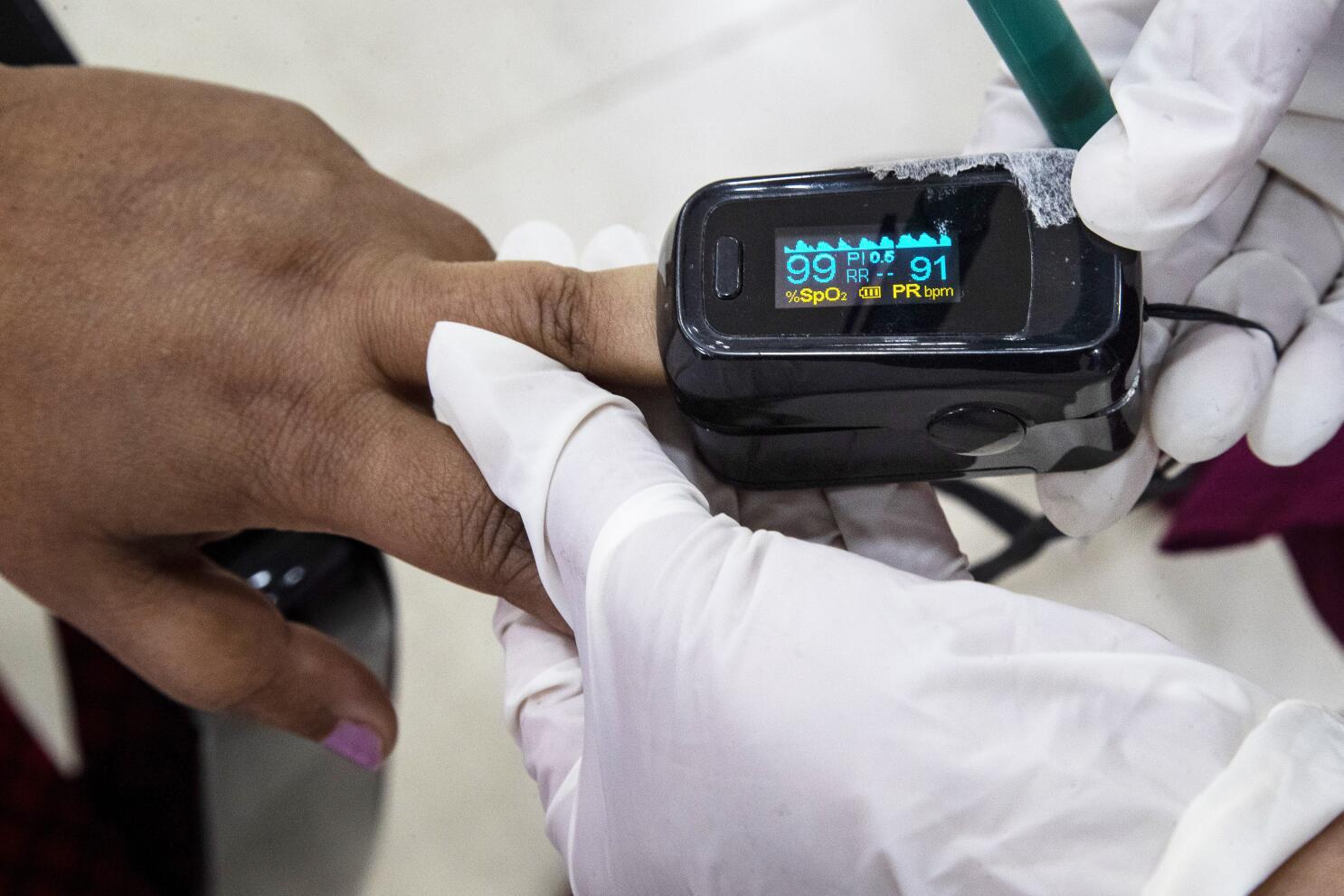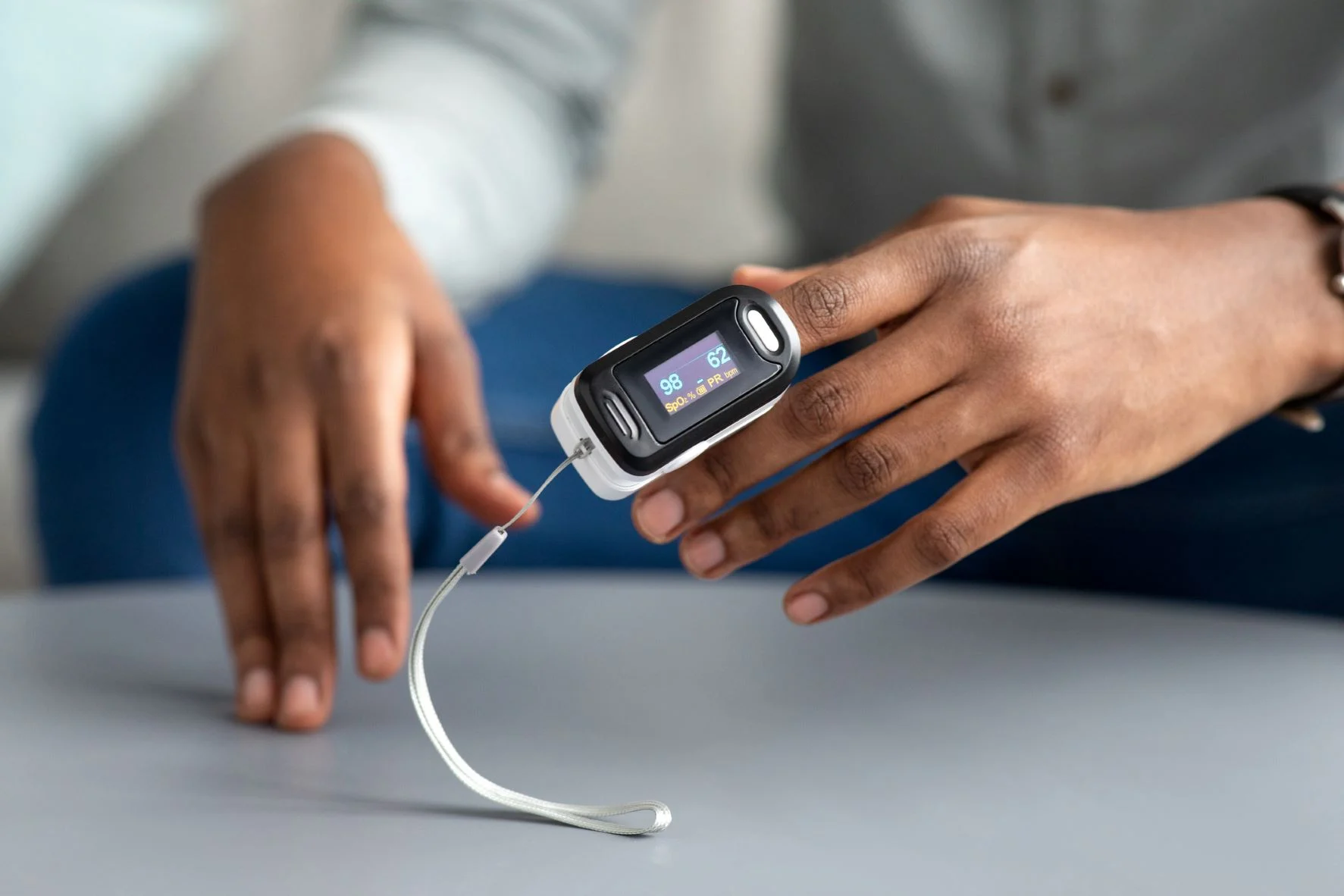In December 2020, Dr. Noha Aboelata, an Oakland-based family physician, recalled a patient with emphysema who had normal blood oxygen saturation readings on a pulse oximeter, yet was sicker than the device indicated. This prompted further testing, which confirmed that the patient needed supplemental oxygen at home.
Aboelata’s concern grew when she later read a study showing that pulse oximeters were significantly less accurate in detecting low oxygen levels in Black patients compared to white patients. This finding highlighted a serious racial bias in medical devices, particularly during the COVID-19 pandemic when Black Americans were disproportionately affected by the virus.
The issue of racial bias in pulse oximeters became a focal point in health discussions, as the devices were routinely used to monitor oxygen levels for conditions like lung disease and sleep apnea. However, studies have shown that these devices were more likely to give inaccurate readings for Black patients, delaying treatment and worsening health outcomes.
Aboelata, frustrated by this revelation, shared the research with colleagues, lamenting that their reliance on the technology was systematically flawed, especially for the populations they served.
The FDA, under pressure from both U.S. senators and state attorneys general, had begun to acknowledge the problem and issued safety warnings in 2021. It also started funding research to improve the accuracy of these devices, but the steps taken so far were seen as insufficient.
Experts suggested that the FDA’s guidelines were too narrow, lacking real-world testing in people with darker skin and those suffering from poor blood circulation, which is common among Black patients. These factors further degrade pulse oximeter performance, making them unreliable for monitoring oxygen levels in patients with compromised perfusion.

The history of inadequate action on this issue dates back to the 1980s when initial studies found discrepancies in pulse oximeter readings for darker-skinned individuals. Despite this, manufacturers continued to sell devices without addressing these flaws.
In 2005, further research confirmed that popular oximeters failed to detect hypoxemia (low oxygen levels) in darker-skinned patients, particularly those severely oxygen-depleted. Calls for warnings on the devices went unanswered, and the FDA’s regulations remained minimal.
Although the oximeter industry has tested its products on small numbers of patients with darker skin, the tests have often been conducted under ideal conditions, not reflecting real-world situations. This has led to questions about the accuracy of oximeters in diverse populations.
Even when devices performed well in healthy individuals with dark skin, their performance was not always reliable in patients with poor perfusion or other complicating factors. This mismatch in testing conditions has hindered the development of better solutions.
The pulse oximeter issue has taken on global significance, particularly as poorer countries sought donations of devices during the pandemic. Many of the oximeters selected were substandard, reinforcing the need for accurate testing and better manufacturing practices.
The UCSF Hypoxia Research Lab, which has studied pulse oximeters extensively, has created its own ratings for these devices. It found that many marketed oximeters failed to meet FDA standards, with even some high-priced models performing poorly compared to cheaper alternatives.
While the FDA’s efforts to resolve this issue have faced pushback from the industry, there is hope that future guidelines will require better diversity in testing. This would involve ensuring a wider representation of people with darker skin tones in the development and clinical testing phases.
However, the implementation of these guidelines remains uncertain, as the device industry continues to resist changes that could increase the cost of production and limit access to affordable technology.
Despite these challenges, some manufacturers have begun to respond to the criticism. In response to lawsuits, several companies have added warnings to their pulse oximeter labels about their limitations for dark-skinned individuals.
However, experts argue that these warnings are not enough and that the fundamental issue lies in the devices themselves. Many clinicians, including Aboelata, advocate for a better solution—one that ensures accurate readings for all patients, regardless of skin tone, to prevent delays in treatment and improve health outcomes.
